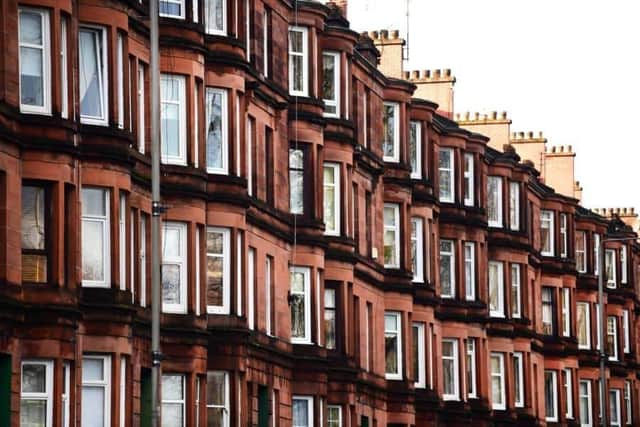Landlords push forward with court battle over Scotland's rent controls and eviction ban
The Scottish Association of Landlords (SAL), Scottish Land and Estates (SLE) and Propertymark insist the law is disproportionate and unfair.
They have now submitted a petition to the Court of Session in Edinburgh seeking a judicial review.
Advertisement
Hide AdAdvertisement
Hide AdIt comes after ministers confirmed rent rises will be capped from April, while evictions will also continue to be banned except under certain circumstances.


This follows on from the rent freeze which was introduced last year to help tenants cope with the cost-of-living crisis.
Private landlords will only be allowed to raise rents by a maximum of 3 per cent from April, but they can apply to Rent Service Scotland to increase the figure to 6 per cent if they have a valid reason.
The Scottish Government will be able to seek a further six-month extension beyond the September 30 expiry of the legislation.
Tenants’ rights minister Patrick Harvie said it was clear protections are still needed “to give tenants greater confidence about their housing costs and the security of a stable home”.
But landlords and letting bodies raised concerns that the rent control applies irrespective of the financial position of both the tenant and landlord.
They also said the recent decision by the Scottish Government to remove the cap for social landlords means a well-off individual renting in the private sector is provided financial protection not available to someone in more challenging financial circumstances in the social sector.
They said the eviction ban creates a delay in addressing matters such as arrears, which adversely impacts landlord cash flow “culminating in a reduction in capital value”.
Advertisement
Hide AdAdvertisement
Hide AdThe petition argues that by discriminating in the way it does, the law breaches the European Convention of Human Rights.
John Blackwood, chief executive of the SAL, said landlords “have had enough”, adding: “We must stand united to protect our property rights by challenging this unfair legislation in court.”
Sarah-Jane Laing, chief executive of SLE, said: "Regrettably, in recent times the Scottish Government has sought to unfairly penalise private landlords, such as SLE members who provide a vital supply of homes in our rural areas, many at below market rents.”
She said the decision to submit the petition “is not one that has been taken lightly”.
Nathan Emerson, chief executive of Propertymark, said: “The legislation is being made without any clear evidence as to its need. However, the immediate effects are clear to those on the coal face of the problem, as a direct result of the Scottish Government’s initial decision to cap rents at zero, 68 per cent of Scottish letting agents report an increase in notices to sell from landlords.”
He added: ”The private rented sector has been clearly singled out with complete disregard for the positive impact it provides. It is vital that we ensure that the residential property sector in Scotland is investible and that is why we have been left with no choice but to formally object to these measures with the Court of Session in Scotland.”
A Scottish Government spokesman said: “We recognise the role of the private rented sector in providing homes for let, and acknowledge that some costs have been rising for landlords as well as tenants. The emergency legislation passed by Parliament requires us to keep measures under regular review.
"So, subject to the approval of Parliament, we intend to allow landlords in the private sector to increase rents by up to 3 per cent, or alternatively to apply to Rent Service Scotland for an increase of up to 6 per cent to help cover defined cost increases associated with their let property.”
Comments
Want to join the conversation? Please or to comment on this article.
